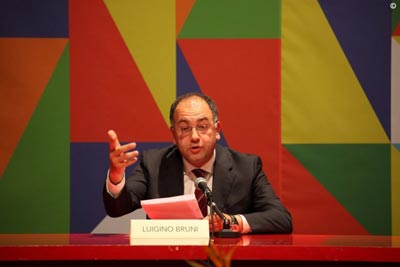
Jul 9, 2016 | Focolare Worldwide
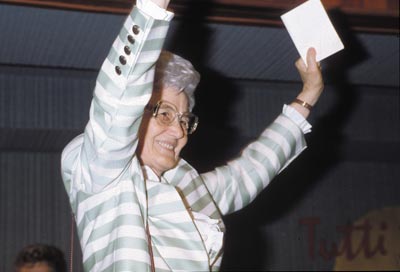
Chiara Lubich, Brazil 1991 – © Centro S. Chiara Audiovisivi
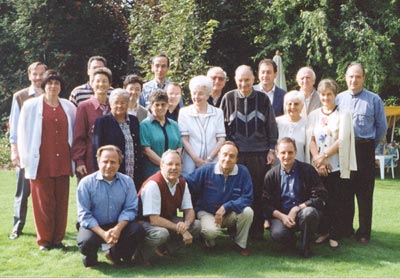
Chiara Lubich and Abba School members (Luigino Bruni, third row, third from right) – © Centro S. Chiara Audiovisivi

© Centro S. Chiara Audiovisivi

Jul 8, 2016 | Focolare Worldwide
 «As my morning flight from Bologna to London, already two hours late due to earlier London storms, circled the skies for an additional 20 minutes, I realized that it would be nearly impossible to make my connecting flight. In fact, a short time later I found myself in an interminable line with hundreds of other customers who had also missed their connections. Airline phones were clogged, so even those with cell phone access were stuck. Most people could summon the patience to wait an hour — but as it become two, three and then way past dinner, the atmosphere began to grow tense. I had settled in with a good book but also began to feel anxious as I realized it would be a challenge to get in touch with the friend who was to pick me up from the airport. Especially when traveling alone, I am not usually talkative with strangers, but at that point I felt a nudge from within to look around, and to remember that the warmth and comfort of God’s presence could be with us, even in this chaotic line. I remembered I had a package of cookies in my bag, and made the first connection with the hungry college students behind me. That was enough to break the ice with everyone in our part of the line. As we began trading stories and commiserating, we also realized that we could help each other. The power from my laptop battery was just enough to charge the cell phone of the German couple who needed to call their family. And this couple was happy to watch my stuff as I scouted out a computer terminal from which I could send an email to my friend. A brief greeting in Italian to another young couple was enough to realize that they and two other couples — all on their honeymoon trips — did not understand the announcements that were being made. I translated for them so that they could navigate their options. After five and a half hours and no alternative flight arrangements yet, we received vouchers for hotel rooms and a meal, and instructions to call the airlines from the hotel. I called from an airport phone and learned that I would need to be back at the airport in just a few hours. As I curled up on an airport chair to catch a few hours of sleep, I realized that notwithstanding the external discomfort, all of these “connections” with my neighbors in the present moment had filled the evening with an unusual sense of peace. And I did make it home the next day, tired, but with a light heart». — Amy Uelmen, Bethesda, MD From Living City May 2016 – www.livingcitymagazine.com
«As my morning flight from Bologna to London, already two hours late due to earlier London storms, circled the skies for an additional 20 minutes, I realized that it would be nearly impossible to make my connecting flight. In fact, a short time later I found myself in an interminable line with hundreds of other customers who had also missed their connections. Airline phones were clogged, so even those with cell phone access were stuck. Most people could summon the patience to wait an hour — but as it become two, three and then way past dinner, the atmosphere began to grow tense. I had settled in with a good book but also began to feel anxious as I realized it would be a challenge to get in touch with the friend who was to pick me up from the airport. Especially when traveling alone, I am not usually talkative with strangers, but at that point I felt a nudge from within to look around, and to remember that the warmth and comfort of God’s presence could be with us, even in this chaotic line. I remembered I had a package of cookies in my bag, and made the first connection with the hungry college students behind me. That was enough to break the ice with everyone in our part of the line. As we began trading stories and commiserating, we also realized that we could help each other. The power from my laptop battery was just enough to charge the cell phone of the German couple who needed to call their family. And this couple was happy to watch my stuff as I scouted out a computer terminal from which I could send an email to my friend. A brief greeting in Italian to another young couple was enough to realize that they and two other couples — all on their honeymoon trips — did not understand the announcements that were being made. I translated for them so that they could navigate their options. After five and a half hours and no alternative flight arrangements yet, we received vouchers for hotel rooms and a meal, and instructions to call the airlines from the hotel. I called from an airport phone and learned that I would need to be back at the airport in just a few hours. As I curled up on an airport chair to catch a few hours of sleep, I realized that notwithstanding the external discomfort, all of these “connections” with my neighbors in the present moment had filled the evening with an unusual sense of peace. And I did make it home the next day, tired, but with a light heart». — Amy Uelmen, Bethesda, MD From Living City May 2016 – www.livingcitymagazine.com
Jul 7, 2016 | Focolare Worldwide
https://vimeo.com/171535556
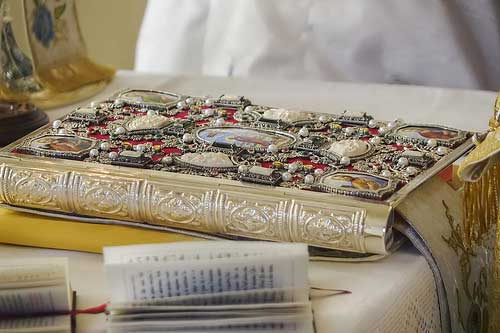
Jul 6, 2016 | Focolare Worldwide

Divine Liturgy at the Patriarchal and Stavropegial Monastery of Gonia. PHOTO: © POLISH ORTHODOX CHURCH/JAROSLAW CHARKIEWICZ.
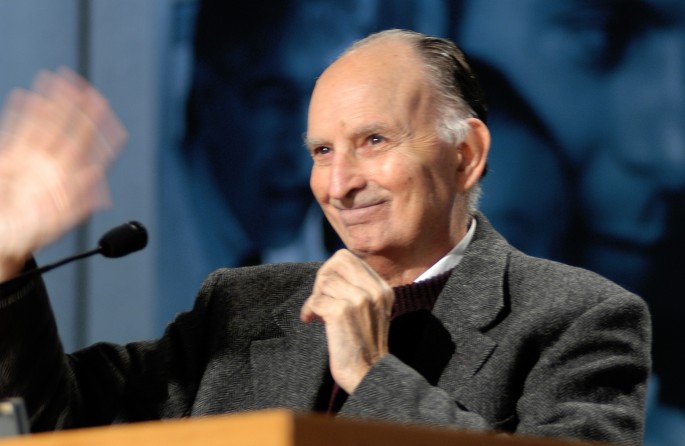
Jul 5, 2016 | Non categorizzato

Pasquale Foresi (July, 5 1929 – June, 14 2015)
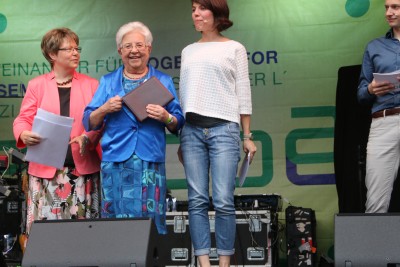
Jul 5, 2016 | Focolare Worldwide
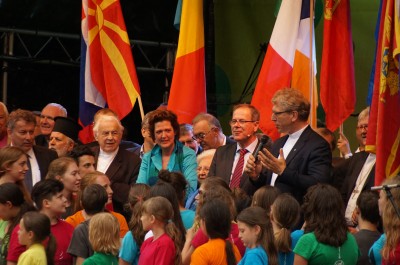
(c) MfE, Foto: Grill
 What we can offer – by committing our lives – is the newness of the Gospel. Before dying Jesus prayed: “Father, may they all be one”. He showed that we are all brothers and sisters, that one “single human family” is possible; that unity is possible; that unity is our destiny. We commit ourselves here, today, to be catalysts of this change, catalysts for a new vision for Europe, so as to speed up the journey towards unity by starting a profound dialogue with and for all the men and women on earth. Dialogue can happen because of the so-called “Golden Rule” which says “Do not do to others what you would not wish done to you” (Cf Lk 6:31). Basically it means to love. And if love becomes mutual it brings fraternity to its fullness among all. In universal fraternity Europe can rediscover its vocation. In the 1950s Chiara Lubich wrote “if one day all peoples were able to set themselves aside, setting aside the idea they have of their own homeland … for the sake of the mutual love among states which God asks of us, just as he asks mutual love among brothers and sisters, that day will be the start of a new era”. So let’s live for this new era! Unity is possible!». Maria Voce Together for Europe, Public Event Munich, 2 July 2016
What we can offer – by committing our lives – is the newness of the Gospel. Before dying Jesus prayed: “Father, may they all be one”. He showed that we are all brothers and sisters, that one “single human family” is possible; that unity is possible; that unity is our destiny. We commit ourselves here, today, to be catalysts of this change, catalysts for a new vision for Europe, so as to speed up the journey towards unity by starting a profound dialogue with and for all the men and women on earth. Dialogue can happen because of the so-called “Golden Rule” which says “Do not do to others what you would not wish done to you” (Cf Lk 6:31). Basically it means to love. And if love becomes mutual it brings fraternity to its fullness among all. In universal fraternity Europe can rediscover its vocation. In the 1950s Chiara Lubich wrote “if one day all peoples were able to set themselves aside, setting aside the idea they have of their own homeland … for the sake of the mutual love among states which God asks of us, just as he asks mutual love among brothers and sisters, that day will be the start of a new era”. So let’s live for this new era! Unity is possible!». Maria Voce Together for Europe, Public Event Munich, 2 July 2016
![[:it]Insieme per l’Europa: l’unità è possibile[:de]Einheit ist möglich![:es]Juntos por Europa: la unidad es posible[:fr]Ensemble pour l’Europe : L’unité est possible[:pt]Juntos pela Europa: A unidade é possível](https://www.focolare.org/wp-content/uploads/2016/07/20160701_161752_9438MfE_Fr_Podium5_FotoFischer-e1467623076552.jpg)
Jul 3, 2016 | Focolare Worldwide
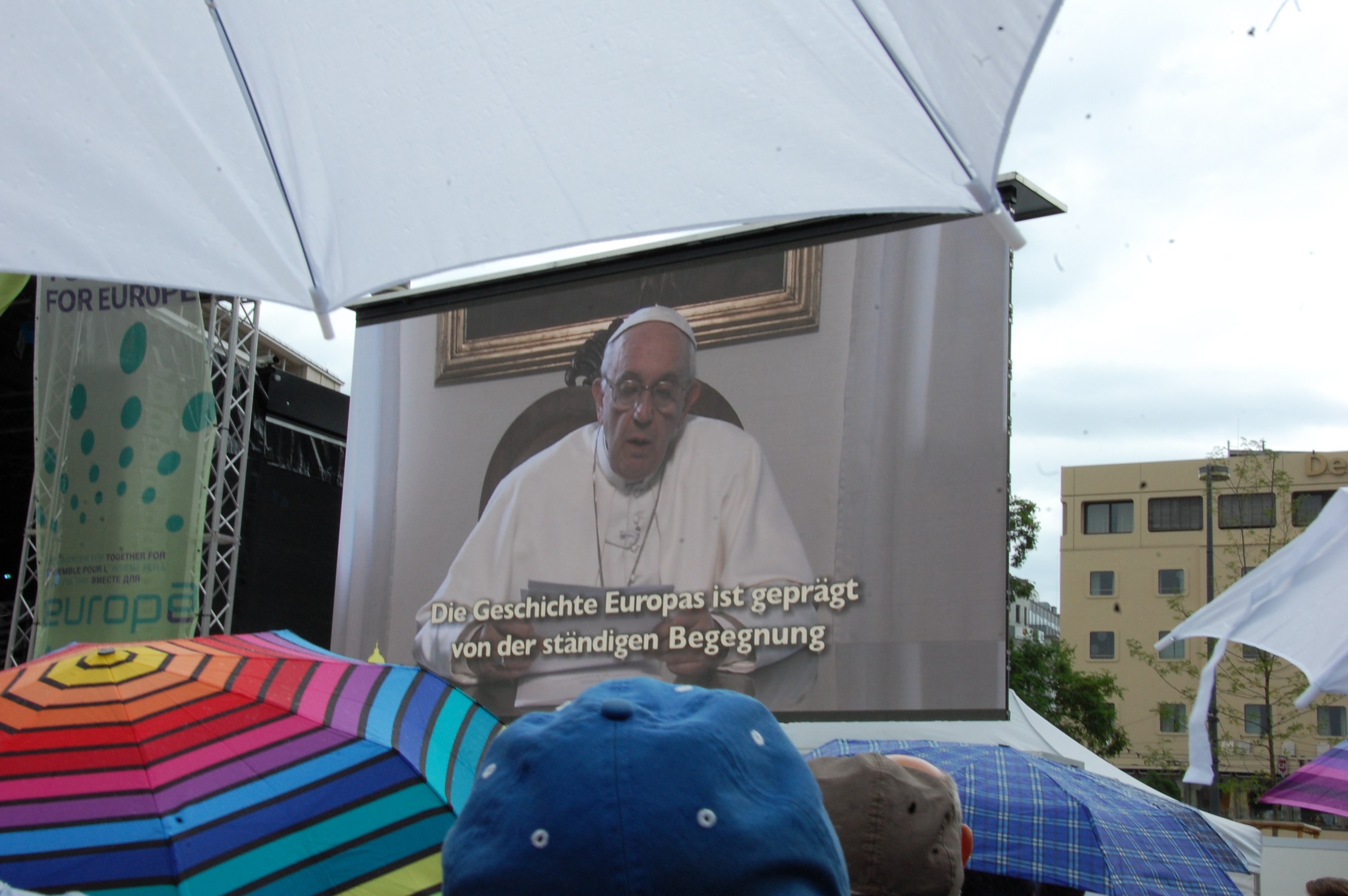
(c) MfE, Foto: Brehm
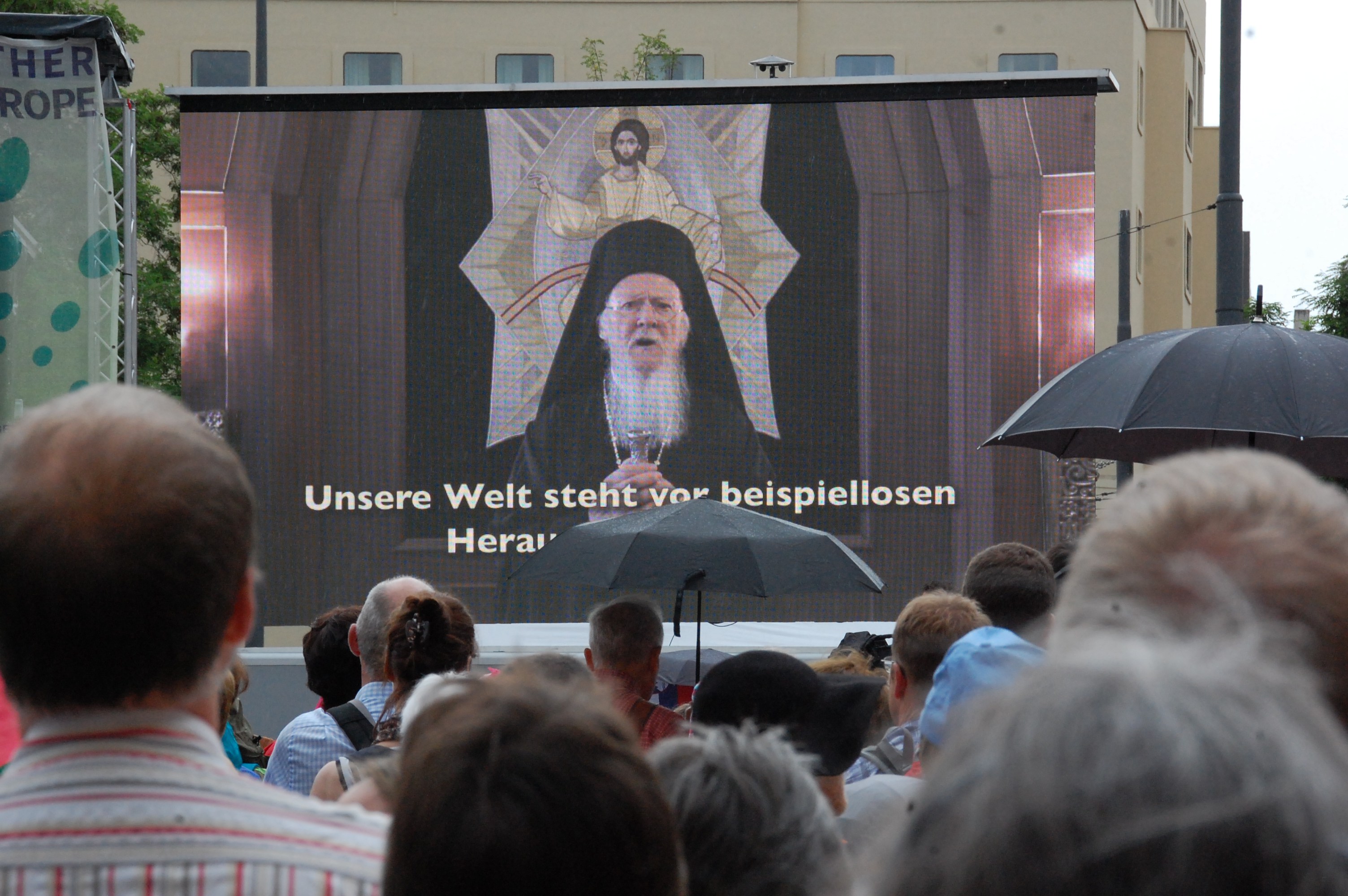
(c) MfE, Foto: Brehm
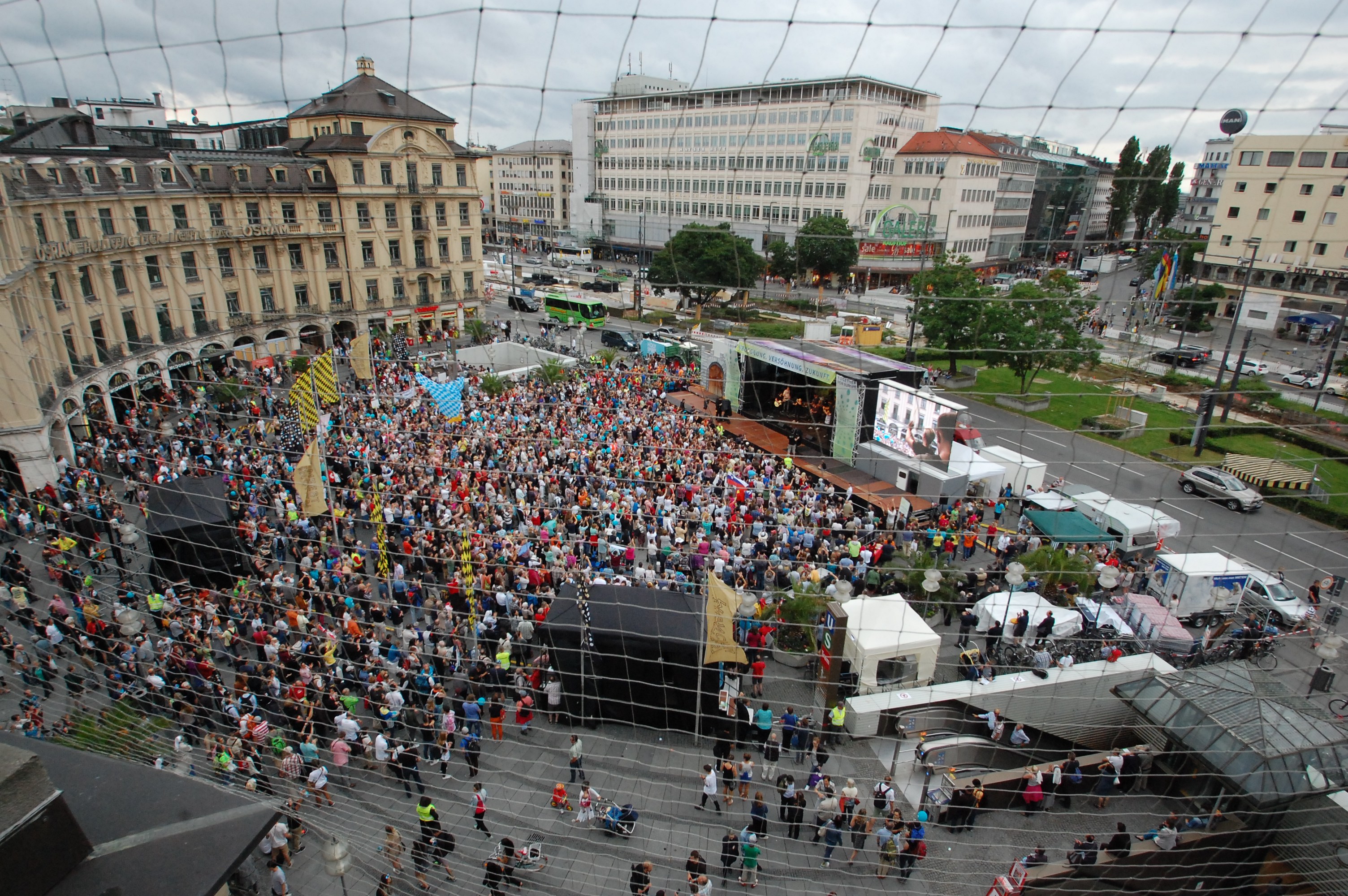
(c) MfE, Foto: Brehm
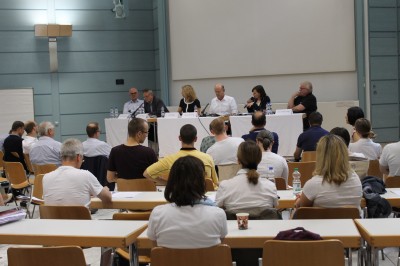
(c) MfE, Foto: Fischer
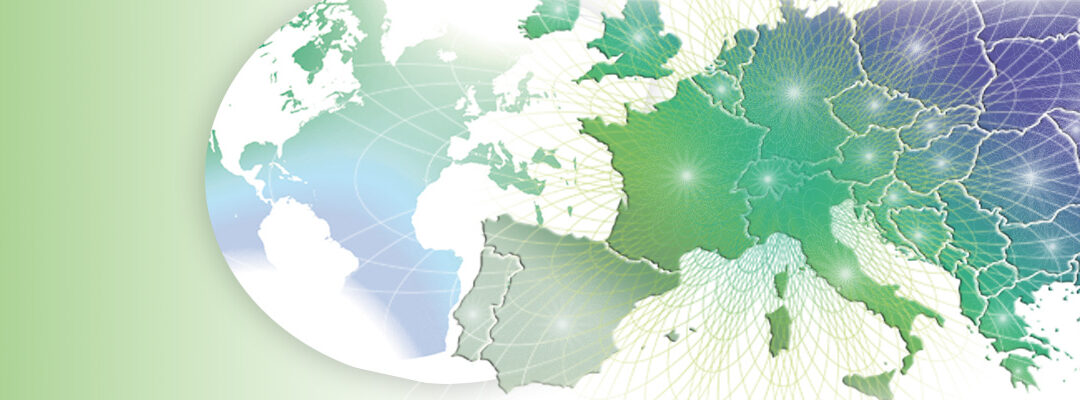
Jul 2, 2016 | Non categorizzato
Together for Europe Encounter, Reconciliation, Future Munich (Bavaria), 2nd July 2016  There is no alternative to being together “United in diversity”. This European hope is more than ever relevant. Europe must not become a fortress and build new frontiers. There is no alternative to being together. Being together in reconciled diversity is possible. The Gospel – a source of hope Jesus Christ prayed for unity and gave his life for it. This is stated in the Gospel, which for almost 2,000 years has played a key role in the culture of Europe. Jesus Christ teaches us boundless love for all people. He shows us the path of mercy and reconciliation. We can ask forgiveness and forgive one another. The Gospel of Jesus Christ is a powerful source from which we can draw hope for the future. Europe – a culture of respect and esteem The terrible experiences of two World Wars have taught us that peace is a precious gift that we must preserve. Our future must be characterised by a culture of respect and esteem for others, even for strangers. Unity is possible – Overcoming divisions We ask all Christians, especially Church leaders, to overcome the divisions. These have caused suffering, violence and injustice, and have undermined the credibility of the Gospel. As Christians we want to live together as people who are reconciled and in full communion. Our commitment We live the Gospel of Jesus Christ and bear witness to it with our words and deeds. We are pursuing the path of reconciliation and working to enable our communities, Churches, peoples and cultures to live “unity in diversity”. We meet people of different beliefs and faiths with respect, seeking dialogue with them. We are committed to building up humanity and peace in the world. We have a vision for Europe being together in a way that is stronger than fear or selfishness. We place our trust in the Holy Spirit who continually renews and gives life to the world Concluding Message – Together For Europe, Munich 2016
There is no alternative to being together “United in diversity”. This European hope is more than ever relevant. Europe must not become a fortress and build new frontiers. There is no alternative to being together. Being together in reconciled diversity is possible. The Gospel – a source of hope Jesus Christ prayed for unity and gave his life for it. This is stated in the Gospel, which for almost 2,000 years has played a key role in the culture of Europe. Jesus Christ teaches us boundless love for all people. He shows us the path of mercy and reconciliation. We can ask forgiveness and forgive one another. The Gospel of Jesus Christ is a powerful source from which we can draw hope for the future. Europe – a culture of respect and esteem The terrible experiences of two World Wars have taught us that peace is a precious gift that we must preserve. Our future must be characterised by a culture of respect and esteem for others, even for strangers. Unity is possible – Overcoming divisions We ask all Christians, especially Church leaders, to overcome the divisions. These have caused suffering, violence and injustice, and have undermined the credibility of the Gospel. As Christians we want to live together as people who are reconciled and in full communion. Our commitment We live the Gospel of Jesus Christ and bear witness to it with our words and deeds. We are pursuing the path of reconciliation and working to enable our communities, Churches, peoples and cultures to live “unity in diversity”. We meet people of different beliefs and faiths with respect, seeking dialogue with them. We are committed to building up humanity and peace in the world. We have a vision for Europe being together in a way that is stronger than fear or selfishness. We place our trust in the Holy Spirit who continually renews and gives life to the world Concluding Message – Together For Europe, Munich 2016









![[:it]Insieme per l’Europa: l’unità è possibile[:de]Einheit ist möglich![:es]Juntos por Europa: la unidad es posible[:fr]Ensemble pour l’Europe : L’unité est possible[:pt]Juntos pela Europa: A unidade é possível](https://www.focolare.org/wp-content/uploads/2016/07/20160701_161752_9438MfE_Fr_Podium5_FotoFischer-e1467623076552.jpg)




